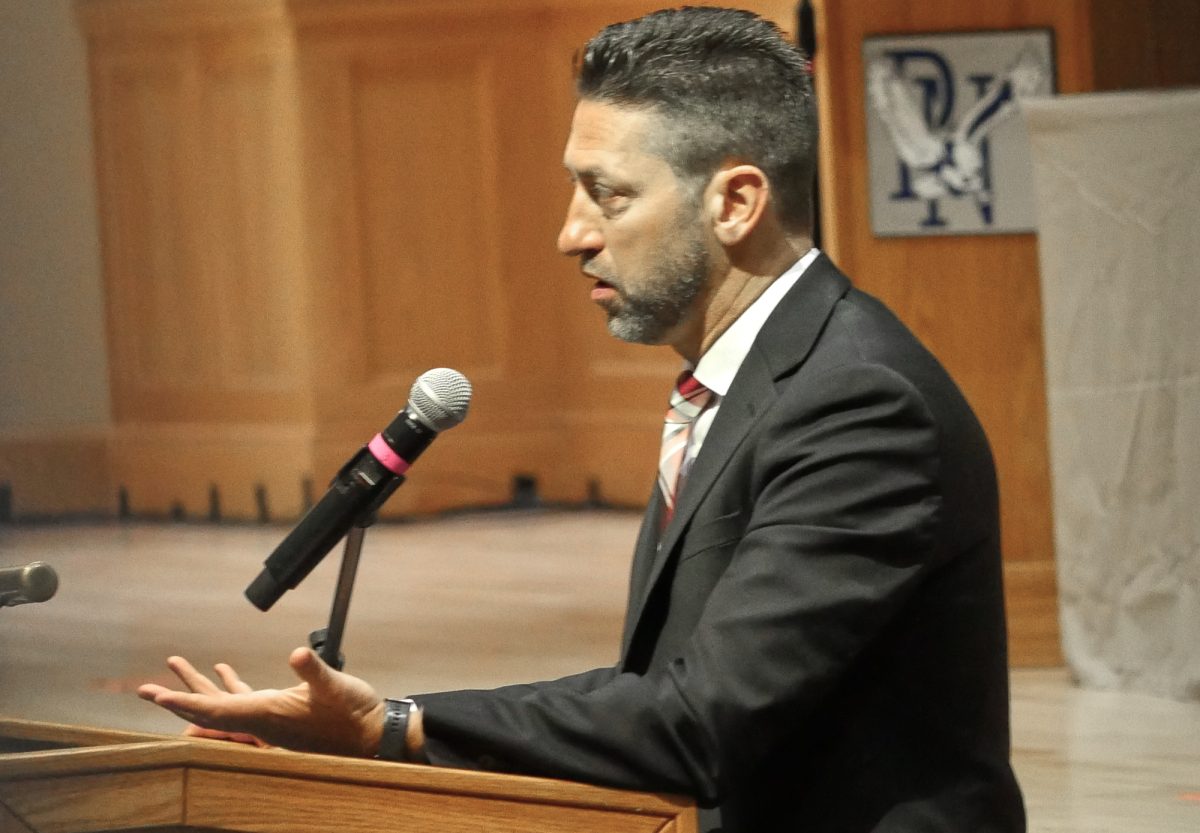The state attorney general on Wednesday found the Plymouth Select Board violated the Massachusetts Open Meeting Law multiple times last year and warned that the town could face civil fines if it violates the law again.
The Select Board failed to approve meeting minutes quickly enough, held an executive session for an impermissible reason, and didn’t provide the public with a sufficiently detailed meeting notice for one meeting, on August 8, 2023, according to Attorney General Andrea Campbell’s office.
Local environmental activist Meg Sheehan and the Community Land and Water Coalition filed several open meeting complaints with the state in 2022 and 2023, detailing a long list of alleged violations committed by the Select Board when it met in executive session to discuss leasing various properties, including parcels on Town Wharf and Center Hill Road. The complaints alleged the board also improperly discussed the value of other real estate, including the Holtec site at the Pilgrim nuclear power plant.
Sheehan, who argued the select board has “repeatedly” violated the Open Meeting Law, said the transgressions have not stopped.
“The practices the Attorney General cited continue to this day,” she wrote in an email. “It is a full-time job keeping up with the Select Board’s open meeting law violations.”
“That is why we fight for transparency and accountability at Plymouth Town Hall. These are the officials charged with protecting our water and community,” Sheehan added.
Town Manager Derek Brindisi said the town has consistently adhered to the Open Meeting Law and that the only violations cited by the attorney general were minor ones, including the failure to approve meeting minutes in a timely manner.
A review of town records, he said, showed that Sheehan had submitted dozens of open meeting law complaints — and most were rejected.
Even so, he said, town officials take the allegations “very seriously” and “strive to always make improvements.”
Campbell found several violations but failed to substantiate many other allegations.
Her office ruled that the Select Board once relied on an exception to the Open Meeting Law that did not apply. The board should not have gone into executive session on June 20 of last year to discuss a land swap with the state for property on Route 25 known as 1,000 Acres, the ruling said.
The board incorrectly invoked an exclusion allowing it to meet in closed session “to consider the purchase, exchange, lease or value of real property” if an open meeting might have a “detrimental effect” on the town’s negotiating position.
Since both sides in the negotiations — state and town officials — attended the executive session, the town’s negotiating position would not have been compromised if the meeting had been public, the ruling said.
Sheehan alleged seven violations of the same rule, but the attorney general found the other meetings “were proper.”
Assistant Attorney General Matthew Lindberg, who wrote the decision, also found that the Select Board failed to generate and approve minutes of open public meetings “in a timely manner.”
Minutes of meetings held in November 2022 were not approved until February 2023, he wrote. And minutes of meetings held between December 6, 2022, and June 27, 2023, were not approved until August 22, 2023.
“The timeliness of minutes is not a procedural nicety untethered to the other requirements of the open meeting law,” Lindberg wrote. “When minutes are created and approved in a timely manner, they are more likely to accurately memorialize the discussions held, the decisions made, and the actions taken at the meeting.”
Brindisi said the minutes were delayed because a former staffer had two time consuming jobs — aide to the Select Board and the town’s communications assistant. Town Meeting just approved the creation of a new town communications position. Its duties will include creating meeting minutes.
“The issue has been rectified,” Brindisi said.
The ruling referred to the attorney general’s finding in August that the town violated the open meeting law on November 15, 2022, when the Select Board and the Zoning Board of Appeals held an executive session on the proposed Claremont 55-plus housing complex.
At that session, the town agreed to waive $1.5 million in fees from the developer of the proposed complex at Colony Place.
The town made the arrangement because Claremont offered to build a booster water pump in the area at a cost of roughly $3 million— something the town would otherwise have had to pay for.
But the attorney general found that meeting was held for an “improper purpose.” In addition, the meeting notice and eventually released minutes were insufficient, the ruling said.
On Wednesday Campbell’s office, citing the August ruling, ordered the select board’s “immediate and future compliance with the Open Meeting Law,” warning that any future intentional violations may result in a civil penalty of up to $1,000 per violation.”
Claremont, facing legal challenges, has withdrawn its plan for the 55-plus development and will build a 40b, affordable housing complex, instead, town officials said. It will likely be denser and taller than the original project, town officials have said.
Under state law, communities whose housing supply is less than 10 percent affordable cannot reject 40b projects.
Andrea Estes can be reached at andrea@plymouthindependent.org.

